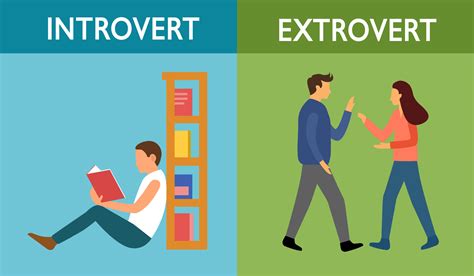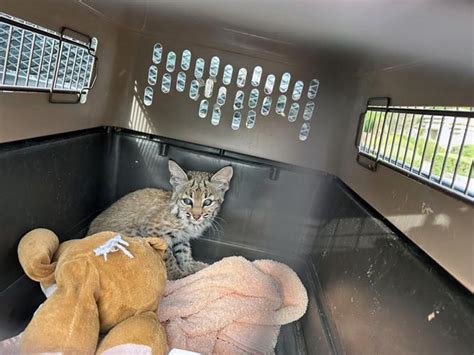
Navigating social interactions can be challenging for introverts, but it doesn’t have to be. Simple “cheat codes,” from strategic scheduling to mastering active listening, can significantly enhance an introvert’s social life without compromising their need for solitude and personal space. Experts emphasize the importance of understanding one’s social battery and employing techniques that facilitate meaningful connections while respecting individual boundaries.
Strategies for Social Success: The Introvert’s Toolkit
Many introverts feel overwhelmed by social situations, perceiving them as energy-draining rather than fulfilling. However, with the right strategies, introverts can navigate social interactions more effectively, leading to richer, more satisfying connections. These strategies, often referred to as “cheat codes,” focus on optimizing social engagement and managing energy levels to avoid burnout.
One crucial aspect is understanding your personal social battery. “Introverts need to be aware of their social battery and how much energy they have for socializing,” experts note. Recognizing the signs of social fatigue – such as increased irritability, difficulty concentrating, or a strong desire to withdraw – is the first step in managing social interactions effectively.
1. Strategic Scheduling: Plan and Pace Yourself
One of the most effective strategies is to strategically schedule social activities. Rather than cramming multiple events into a single weekend, spread them out over time. This allows introverts to recharge and avoid feeling overwhelmed. Planning also allows for mental preparation. Knowing what to expect can reduce anxiety and make the social experience more enjoyable.
“Spread social events out so you have time to recharge,” experts suggest. This pacing is key to maintaining a healthy balance between social engagement and personal time.
2. Choose Your Battles: Selective Socializing
Not all social invitations are created equal. Introverts should prioritize events that align with their interests and values, and politely decline those that don’t. This selective approach ensures that social energy is invested in meaningful interactions that are more likely to be rewarding.
“Focus on quality over quantity when it comes to social interactions,” experts advise. “Attend events that genuinely interest you and allow you to connect with like-minded individuals.”
3. Arrive Early, Leave Early: Control the Experience
Arriving early to social gatherings offers several advantages. It allows introverts to acclimate to the environment before it becomes too crowded or noisy. It also provides an opportunity to connect with people in a more relaxed setting. Similarly, leaving early prevents social fatigue from setting in and allows for a graceful exit.
“Arriving early and leaving early allows you to control the level of stimulation and avoid feeling overwhelmed,” experts explain. This strategy empowers introverts to manage their social experience on their own terms.
4. The Power of One-on-One: Prioritize Individual Connections
Large group settings can be particularly draining for introverts. Focusing on one-on-one conversations allows for deeper, more meaningful connections. These conversations are often less superficial and more conducive to building genuine relationships.
“One-on-one interactions are generally more comfortable and less overwhelming for introverts,” experts point out. “They allow for deeper connections and more meaningful conversations.”
5. Master the Art of Active Listening: Engage and Connect
Active listening is a powerful tool for introverts. By focusing on truly understanding what others are saying, rather than formulating a response, introverts can engage more effectively in conversations. This approach also takes the pressure off of having to be the center of attention.
“Active listening is a great way for introverts to participate in conversations without feeling like they have to dominate the discussion,” experts say. “It shows genuine interest in others and fosters deeper connections.”
6. Prepare Conversation Starters: Break the Ice
Having a few conversation starters prepared can help introverts feel more confident in social situations. These can be simple questions or observations about the environment or the event. Having a mental list of topics can ease the anxiety of initiating conversations.
“Having a few conversation starters in mind can help you feel more prepared and less anxious about socializing,” experts suggest. “Think about topics that are relevant to the event or that you genuinely enjoy discussing.”
7. Find a Wingman (or Wingwoman): Shared Social Burden
Having a supportive friend or acquaintance at social events can make a significant difference. A wingman can help introduce you to new people, provide a buffer in overwhelming situations, and offer a sense of security.
“Having a wingman can provide support and make you feel more comfortable in social situations,” experts note. “They can help you navigate conversations and introduce you to new people.”
8. Embrace the Power of Observation: Learn and Adapt
Introverts are often naturally observant. Use this strength to your advantage by observing social dynamics and learning from others. Pay attention to how people interact, how conversations flow, and how to navigate different social situations.
“Observing social interactions can provide valuable insights and help you feel more comfortable in different settings,” experts advise. “Pay attention to body language, conversation styles, and social cues.”
9. Take Breaks: Recharge and Re-Engage
It’s essential for introverts to take breaks during social events to recharge. Find a quiet space where you can be alone for a few minutes, whether it’s a restroom, a hallway, or an outdoor area. Use this time to breathe deeply, clear your mind, and regain your energy.
“Taking breaks is crucial for introverts to avoid social burnout,” experts emphasize. “Find a quiet space where you can be alone for a few minutes to recharge.”
10. Body Language Awareness: Communicate Confidence
Pay attention to your body language. Maintain eye contact, smile, and stand tall to project confidence. Open and approachable body language can make you more inviting to others and encourage them to engage with you.
“Body language can significantly impact how others perceive you,” experts explain. “Maintain eye contact, smile, and stand tall to project confidence and approachability.”
11. The Art of the Exit Strategy: Plan Your Departure
Having an exit strategy in mind can alleviate anxiety and make it easier to leave a social event when you’ve reached your limit. This could involve having a pre-arranged excuse or simply excusing yourself politely.
“Having an exit strategy can help you feel more in control of your social experience,” experts suggest. “Plan how you will leave the event without feeling guilty or awkward.”
12. Leverage Technology: Connect Online
Online platforms offer a less intimidating way for introverts to connect with others. Join online communities related to your interests, participate in discussions, and build relationships from the comfort of your own home.
“Online platforms can be a great way for introverts to connect with others without the pressure of face-to-face interactions,” experts note. “Join online communities related to your interests and build relationships at your own pace.”
13. Find Your Social Niche: Shared Interests
Seek out social activities that align with your interests. This could involve joining a book club, a hiking group, or a volunteer organization. Shared interests provide a natural basis for conversation and connection.
“Engaging in activities related to your interests makes socializing more enjoyable and less draining,” experts advise. “You’ll be more likely to connect with people who share your passions.”
14. Practice Self-Compassion: Be Kind to Yourself
It’s important to be kind to yourself and avoid self-criticism. Socializing can be challenging for introverts, and it’s okay to feel awkward or uncomfortable at times. Acknowledge your efforts and celebrate your successes, no matter how small.
“Practice self-compassion and avoid being too hard on yourself,” experts emphasize. “Socializing can be challenging, and it’s okay to feel awkward or uncomfortable at times.”
15. Embrace Your Introversion: Accept Your Strengths
Instead of trying to be someone you’re not, embrace your introversion and recognize its strengths. Introverts are often deep thinkers, good listeners, and creative problem-solvers. These qualities can be valuable assets in social situations.
“Embrace your introversion and recognize its strengths,” experts say. “Introverts have unique qualities that can make them valuable contributors to social interactions.”
16. Small Talk Mastery: The Gateway to Connection
While small talk might seem superficial, it’s often the gateway to deeper conversations. Practice engaging in brief, lighthearted exchanges with others. Ask open-ended questions and show genuine interest in their responses.
“Small talk can be a valuable tool for building rapport and initiating conversations,” experts note. “Practice asking open-ended questions and showing genuine interest in others.”
17. Reframe Socializing: Opportunity, Not Obligation
Try to reframe socializing as an opportunity for connection and personal growth, rather than an obligation. Focus on the potential benefits of social interactions, such as meeting new people, learning new things, and expanding your perspectives.
“Reframe socializing as an opportunity for connection and personal growth,” experts advise. “Focus on the potential benefits, rather than the perceived burdens.”
By implementing these “cheat codes,” introverts can navigate social situations more effectively, build meaningful relationships, and enjoy a richer, more fulfilling social life, all while honoring their need for solitude and personal space.
Frequently Asked Questions (FAQ)
1. What exactly does it mean to be an introvert?
Introversion is a personality trait characterized by a preference for solitary activities and a tendency to find social interaction draining. Introverts often require time alone to recharge their energy after social engagements. It’s important to note that introversion is distinct from shyness; while shy individuals may fear social judgment, introverts simply find social interaction more taxing. “Introverts need to be aware of their social battery and how much energy they have for socializing,” experts emphasize. They gain energy from spending time alone, reflecting, and engaging in quiet activities.
2. How can I tell if I’m experiencing “social burnout,” and what should I do about it?
Social burnout is a state of emotional, physical, and mental exhaustion caused by excessive social interaction. Symptoms can include irritability, difficulty concentrating, increased anxiety, a desire to withdraw from social situations, and physical fatigue. To combat social burnout, it’s crucial to prioritize rest and solitude. Schedule regular breaks from social activities, engage in relaxing hobbies, and set clear boundaries with others regarding your availability. “Taking breaks is crucial for introverts to avoid social burnout,” experts advise. Finding a quiet space to decompress and recharge is essential for maintaining well-being.
3. Is it possible for an introvert to genuinely enjoy socializing?
Yes, absolutely. Introverts can and often do enjoy socializing, but they typically prefer smaller gatherings, deeper conversations, and interactions with close friends or like-minded individuals. The key is to approach socializing strategically, choosing events that align with their interests and values, and managing their energy levels effectively. “Focus on quality over quantity when it comes to social interactions,” experts suggest. “Attend events that genuinely interest you and allow you to connect with like-minded individuals.” When socializing is approached thoughtfully and with consideration for personal needs, it can be a rewarding experience for introverts.
4. How can I explain my need for solitude to friends and family without hurting their feelings?
Honest and open communication is key. Explain to your friends and family that your need for solitude is not a reflection of your feelings for them, but rather a fundamental aspect of your personality. Frame it as a way for you to recharge and be a better friend or family member in the long run. Use “I” statements to express your needs without placing blame. For example, “I really value our time together, and I find that I’m a better friend when I also have some time alone to recharge.” Setting clear boundaries and communicating them respectfully can help maintain healthy relationships while honoring your introverted nature.
5. What are some practical ways to initiate conversations at social events when I feel awkward or anxious?
Preparation is key. Have a few conversation starters prepared in advance, such as open-ended questions about the event, shared interests, or current events. Focus on active listening when others are speaking, and show genuine interest in their responses. Remember that small talk is often the gateway to deeper conversations. “Having a few conversation starters in mind can help you feel more prepared and less anxious about socializing,” experts suggest. Starting with simple, non-threatening topics can ease the tension and allow you to gradually build rapport with others. Also, remember to be kind to yourself and acknowledge that feeling awkward is a normal part of social interaction.
6. How can introverts effectively network in professional settings without feeling overwhelmed?
Networking can be approached strategically. Prioritize quality over quantity by focusing on building genuine connections with a few key individuals. Prepare an “elevator pitch” to concisely explain your professional background and interests. Attend networking events that align with your industry or areas of expertise. Follow up with contacts after the event with personalized messages. Online networking platforms like LinkedIn can also be valuable tools for connecting with professionals in a less intimidating setting. “Online platforms can be a great way for introverts to connect with others without the pressure of face-to-face interactions,” experts note. Remember that networking is about building relationships, not simply collecting business cards.
7. What role does body language play in social interactions for introverts?
Body language is crucial. Projecting confidence and approachability through open and positive body language can make a significant difference in how others perceive you. Maintain eye contact, smile, stand tall, and avoid crossing your arms. Mirroring the body language of the person you’re speaking with can also help build rapport. Be mindful of your nonverbal cues and how they might be interpreted by others. “Body language can significantly impact how others perceive you,” experts explain. Projecting an open and engaging demeanor can make you more approachable and encourage others to initiate conversations.
8. How can I best support an introvert in my life who is struggling with social situations?
Understanding and patience are essential. Respect their need for solitude and avoid pressuring them to socialize more than they’re comfortable with. Offer to be their “wingman” at social events, providing support and helping them navigate conversations. Listen empathetically to their concerns and validate their feelings. Encourage them to engage in activities that they enjoy and that align with their interests. Remember that introversion is a valid personality trait, not a flaw that needs to be fixed.
9. Are there any specific strategies for introverts to manage their energy levels during long social events like weddings or conferences?
Strategic planning is key. Arrive early to acclimate to the environment before it becomes too crowded. Schedule regular breaks throughout the event to recharge. Find a quiet space where you can be alone for a few minutes. Prioritize one-on-one conversations over large group interactions. Don’t feel obligated to participate in every activity or conversation. It’s okay to politely decline invitations or excuse yourself from overwhelming situations. Having an exit strategy in mind can also alleviate anxiety.
10. How can introverts leverage their strengths in social situations?
Introverts possess several strengths that can be valuable in social settings. They are often excellent listeners, deep thinkers, and empathetic communicators. Use these qualities to your advantage by actively listening to others, asking thoughtful questions, and offering insightful perspectives. Embrace your ability to connect with others on a deeper level and build meaningful relationships. Don’t try to be someone you’re not; instead, embrace your introversion and leverage its unique strengths.
11. Can an introvert be a good leader? What are their specific advantages?
Yes, introverts can be excellent leaders, often bringing unique strengths to leadership roles. Their ability to listen attentively, think critically, and empathize with others can make them highly effective. Introverted leaders often excel at empowering their team members, fostering collaboration, and creating a supportive work environment. They tend to be more deliberate in their decision-making and less likely to be swayed by impulsive actions. Their introspective nature allows them to reflect on their own performance and continuously improve their leadership skills. While extroverted leaders are often perceived as more charismatic, introverted leaders can build strong and lasting relationships based on trust and mutual respect.
12. How can I best prepare for a social event that I know will be challenging for me as an introvert?
Mental preparation is crucial. Visualize yourself successfully navigating the social event. Prepare conversation starters and rehearse how you will introduce yourself. Plan your outfit and make sure you feel comfortable and confident. Research the event and the people who will be attending. Develop an exit strategy in advance. On the day of the event, prioritize self-care activities that help you relax and reduce anxiety, such as meditation, exercise, or spending time in nature.
13. What are some good topics for small talk that are likely to engage introverts?
Avoid superficial or controversial topics. Instead, focus on topics that are thought-provoking, intellectually stimulating, or related to shared interests. Ask about their favorite books, movies, or podcasts. Discuss current events in a non-confrontational way. Talk about travel experiences, hobbies, or personal passions. Ask about their opinions on interesting articles or documentaries. The key is to find topics that allow for deeper conversation and genuine connection.
14. How can introverts effectively use social media to build relationships and network without feeling overwhelmed by the constant stream of information?
Be selective about your social media platforms and the accounts you follow. Focus on platforms that align with your interests and values. Set boundaries for your social media usage and avoid spending too much time scrolling mindlessly. Engage with content that resonates with you and participate in discussions that are meaningful. Use social media to connect with people who share your interests and build relationships online. Remember that it’s okay to take breaks from social media when you feel overwhelmed.
15. Are there any specific strategies for introverts to deal with social anxiety?
Social anxiety is a distinct condition from introversion, but it can often co-occur. If you experience social anxiety, consider seeking professional help from a therapist or counselor. Cognitive behavioral therapy (CBT) can be an effective treatment for social anxiety. Practice relaxation techniques such as deep breathing or meditation to manage anxiety symptoms. Challenge negative thoughts and replace them with more positive and realistic ones. Gradually expose yourself to social situations that you find anxiety-provoking. Remember that you are not alone and that help is available.
16. How can introverts effectively assert themselves in social situations without feeling like they are being pushy or aggressive?
Assertiveness is about expressing your needs and opinions in a clear and respectful manner. Use “I” statements to communicate your thoughts and feelings without blaming or accusing others. Practice saying “no” politely but firmly when you need to decline an invitation or set a boundary. Be confident in your own opinions and values. Avoid apologizing unnecessarily. Remember that you have a right to express yourself and to have your needs met.
17. What is the best way for an introvert to recover after a draining social event?
Prioritize self-care activities that help you relax and recharge. Spend time alone engaging in quiet activities that you enjoy, such as reading, listening to music, or taking a bath. Avoid scheduling any further social engagements for a day or two. Get plenty of sleep. Practice mindfulness or meditation to clear your mind and reduce stress. Nourish your body with healthy food and drinks. Remember that recovery is essential for maintaining your well-being and avoiding burnout.
18. How can I use my introversion to my advantage in a work environment that is often geared towards extroverts?
Highlight your strengths, such as your ability to focus, listen attentively, and think critically. Seek out opportunities to work independently on projects that require deep thought and analysis. Volunteer for tasks that involve research, writing, or problem-solving. Communicate your ideas and opinions clearly and concisely in writing. Build strong relationships with a few key colleagues who understand and appreciate your introverted nature.
19. What are some common misconceptions about introverts that you would like to dispel?
One common misconception is that introverts are shy or antisocial. While some introverts may also be shy, introversion is not the same as shyness. Introverts simply prefer solitary activities and find social interaction draining. Another misconception is that introverts don’t enjoy socializing. Introverts can and often do enjoy socializing, but they typically prefer smaller gatherings and deeper conversations. Finally, some people believe that introverts are less capable leaders than extroverts. In reality, introverts can be highly effective leaders, bringing unique strengths to leadership roles.
20. What advice would you give to a young introvert who is just starting to navigate the social world?
Embrace your introversion and recognize its strengths. Don’t try to be someone you’re not. Learn to manage your energy levels and set boundaries. Prioritize quality over quantity when it comes to social interactions. Find activities and social groups that align with your interests. Be kind to yourself and avoid self-criticism. Remember that you are not alone and that there are many other introverts who share your experiences.









